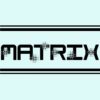Core Scientific Training:
All students (graduate and undergraduate) complete a mandatory ‘MATRIX Base Camp’. The MATRIX Base Camp is a 2-week, 3-credit course on metabolomics offered each summer.
Students also attend advanced scientific training in at least two of: (a) metabolomics; (b) bioinformatics tools and techniques (c) high-throughput bioenergetic assays; and (d) other high-throughput assays. These are 3-week 3 credit courses, and will be offered annually. These advanced training Boot camps will provide hands-on MS training followed by formal bioinformatic training in targeted and untargeted methodologies of metabolite detection. Students will receive instructions in applying bioinformatics software tools to process, analyze, and visualize MS data, and, in the labs of our chemistry collaborators, will build spectral libraries for compound identification. These intensive courses will provide familiarity with scripting languages (e.g., R, Python, Perl, MATLAB). Boot Camps will rotate between uOttawa, Université de Montréal and McGill University.
One day advanced training will also be offered annually in Metabolomics, Bioinformatics T&T, HT Bioenergetics and Other HT Approaches. Graduate students are required to attend two such workshops during their degrees.
Additional Scientific Training:
Industrial Co-Mentorship: All graduate trainees, beyond being co-mentored by one or more CREATE-MATRIX PIs, will be mentored by an industrial/NGO/government collaborator supporting the industrial metabolomic applications of our primary academic partners.
International and National Industrial Internships: Trainees seeking in-depth training in metabolomics and bioinformatics will have the option to perform internships at the sites of our industrial partners.
International Academic Exchange Program: will fund graduate students to train for 3-6 mo in internationally renowned metabolomics and bioinformatics labs of our academic collaborators.
International Metabolomics Competition: An annual, international metabolomics competition, which will include challenges in metabolite identification, quantification, differential analysis, and synthesis, based on real metabolite samples prepared by our faculty.
Troubleshooting Seminar Series: A monthly seminar series providing round table discussions wherein groups of trainees describe their primary challenges in metabolomic pipeline development.
Professional Training:
The CREATE MATRIX program provides trainees with the necessary skills, information, networks, and tools to be successful in today’s competitive job market. We have surveyed our industrial, NGO, and government partners in order to identify in-demand skills that prospective employers are looking for, and which would provide MATRIX trainees with a competitive advantage. Professional Training is broken down into four Modules:
Module 1: Career Development Training
- Leadership Training: customized 2-day workshop, including self assessment for improved self-awareness, leadership and communication skills, with an emphasis on gender equity, and diversity.
- Networking: Yearly networking workshops (1 day) including industry, NGO, and government collaborators.
- Virtual Workplace: Half-day videoconferenced workshop on how to stay productive in remote work settings, including how to establish clear performance targets; enabling technologies to support virtual meetings; data collection and analysis; troubleshooting; and effective communication and trust.
- Health and Wellness: With the current atmosphere of ‘constant connectivity’ it is difficult for many to take time to ensure personal health and wellness. Annual 1-2h workshops cover such topics as Mindfulness, and Managing Stress.
Module 2: Entrepreneurship Training
- Commercialization Workshop: This 3-day workshop, offered every second year, led by Univalor, the Université de Montréal tech transfer office, leads students through the full commercialization lifecycle for biomedical technologies. From identification, reporting and disclosure (i.e., what constitutes an ‘invention’) to patent protection, licensing, and technology transfer (i.e., protecting and profiting from IP), and ultimately commercialization (i.e., licensing and start-up creation). Students work through real-life relevant examples.
- Regulatory Process and Policy Workshop: The development, translation, and uptake of novel biological technologies is critically dependent upon meeting various quality, safety, and efficacy standards at various regulatory stages. A 2-day workshop, offered every second year, features guest speakers specializing in regulatory affairs from our NGO/industrial partnership organizations.
-Collaboration / Partnership Workshop: Whether the goal is to build an academic collaboration, participate in a research consortium, establish collaborations for technology development between industry and academia, or shaping a multi-organization partnership from an academic or startup perspective, understanding challenges met by researchers and their organizations is critical to success. This 1-day workshop offered every second year explores how to: approach collaborations and partnerships; engage with collaborators and partners; set milestones; and meet expectations.
Module 3: Communications and Community Engagement Training
- Communications Workshop: This 2-day workshop, offered every second year, offers trainees the opportunity to develop personalized research pitches and present their work effectively in written, oral, visual, and social media platforms. Trainees will learn to identify their audience, create a research narrative, and find a ‘hook’ to communicate impact and importance of their work (whether to academics, donors, a CEO, or the media). Trainees will learn practical techniques and tips to speak simply about complex ideas through professional and public presentation training in collaboration with Mitacs.
-The ‘MATRIX- Scientist for a Day’ community outreach program: Feature all MATRIX trainees and their research programs. This highly interactive exhibition day is open to families, individuals, and community stakeholders who want to experience life as a scientist in the MATRIX program. Trainees offer demonstrations on cutting edge technologies (including simple hands-on experiments) and describe their own research and its importance, thereby creating awareness for the field of metabolomics.
- The ‘Matrices Symposium’: is held every 2 years to promote recent research advancements and emerging metabolomics technologies to laboratories and research programs across Canada. The goal of this symposium is to 1) highlight Canadian metabolomics research progress, and 2) make emerging metabolomics technologies more accessible to the broader research community.
Module 4: Ethics & Research Integrity Training
- Research Integrity and Risk Management: Principles of research ethics, data selection, manipulation, and statistical shortcuts. Tri-council policies for animal and human research, Good Laboratory Practise guidelines, Risk factors and assessement, and Mitigation strategies.
- Communication Ethics: Principles of interpersonal communication ethics, Communication styles, Listening and communicating; Persuasive communication, Proven techniques to: Reaching consensus, Saying ‘no’, and Providing effective feedback.




